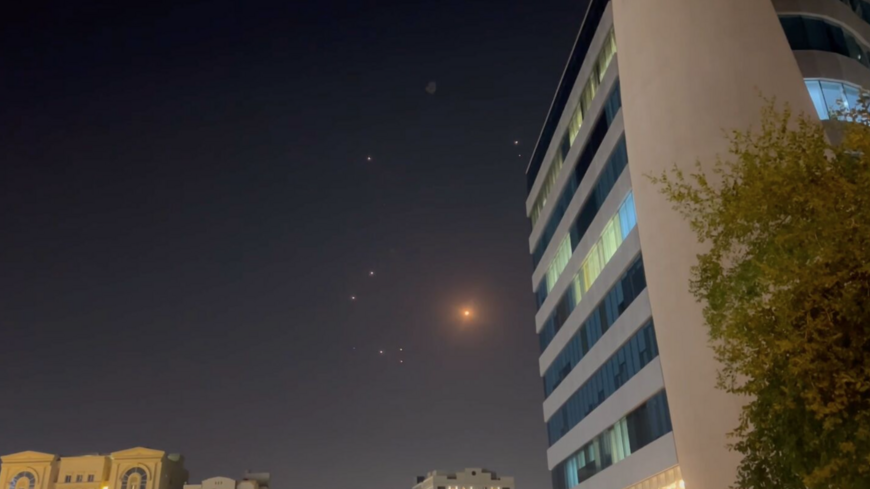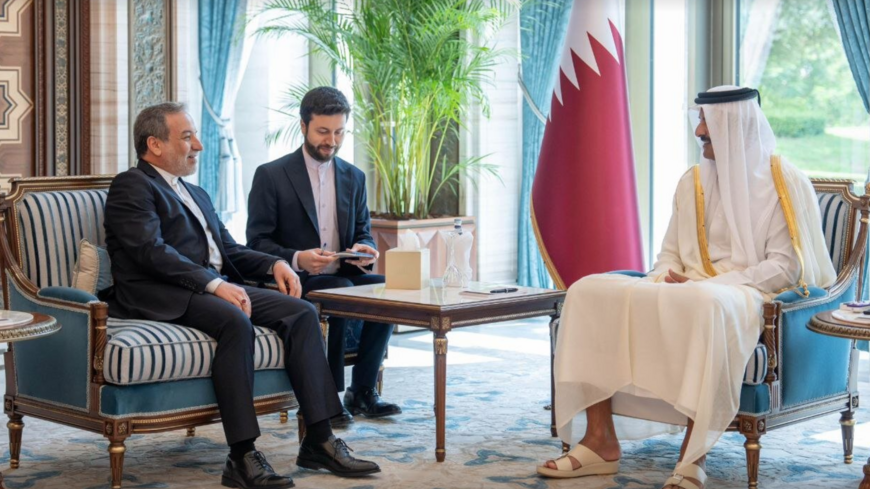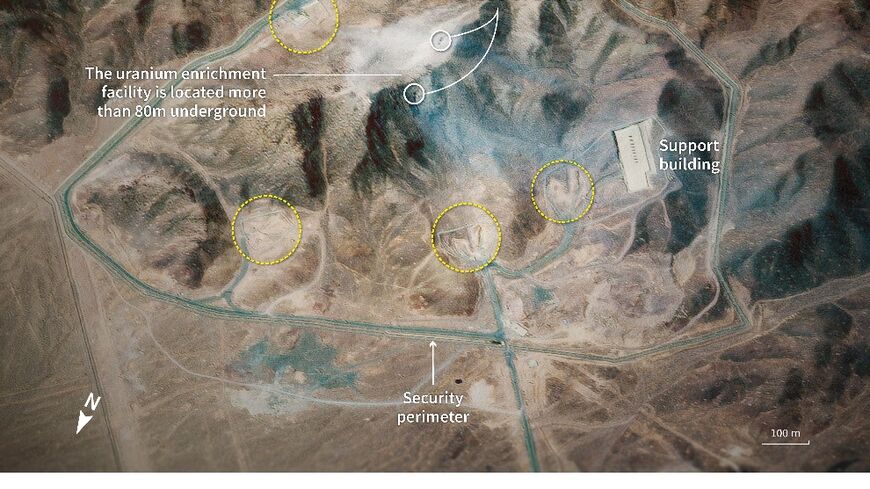Trump 'not happy' with Israel, Iran as ceasefire violated
Following an angry reaction from Trump, Israel scaled back planned strikes in Iran in retaliation for what it said were Iranian missile launches after a ceasefire began last night.

US President Donald Trump lashed out at both Israel and Iran on Tuesday for violating the ceasefire he had announced the day before.
What happened: Speaking outside the White House before boarding Marine One to attend the NATO summit in The Hague, Netherlands, Trump told reporters he was “not happy” with both Israel and Iran for violating the ceasefire, but he concentrated his vitriol on Israel.
"They (Iran) violated but Israel violated it too," Trump said. “Israel, as soon as we made the deal, they came out and dropped a load of bombs the likes of which I’ve never seen before. The biggest load that we’ve seen. I’m not happy with Israel," he added. "I'm not happy with them (Israel), but I am not happy with Iran, either."
Using an expletive, the US president appeared to be frustrated with both countries. Iran and Israel, he said, "have been fighting for so long that they don't know what the f*** they're doing. You understand that?"
President Trump on Israel and Iran: "We basically have two countries that have been fighting so long and so hard that they don’t know what the fuck they’re doing." pic.twitter.com/xrztmebALZ
— CSPAN (@cspan) June 24, 2025
Moments later, in a Truth Social post, Trump addressed Israel’s leadership directly: “Do not drop those bombs. If you do it is a major violation. Bring your pilots home now!”
Trump spoke with Israel's Prime Minister Benjamin Netanyahu by phone on Tuesday morning ahead of the president's departure for the NATO summit.
Asked if he wants to see regime change in Iran, Trump said aboard Air Force One, “No. If there was, there was, but no, I don’t want it. I’d like to see everything calm down as quickly as possible. Regime change takes chaos and ideally we don’t want to see so much chaos. So we’ll see how it does.”
Background: Netanyahu's office said in a statement that Iran had fired three missiles toward Israel overnight after the ceasefire went into effect — one at 7:06 a.m. (12:06 a.m. ET) and two more at 10:25 a.m. (3:25 a.m. ET). The ceasefire went into effect at 4 a.m. Tehran time on Tuesday (3:30 a.m. Israel time Tuesday, 8:30 p.m. Monday ET).
The missiles were all intercepted or landed in open areas, Netanyahu's office said. An earlier missile launched overnight killed four people and wounded more than 20 others in a residential area of Beersheba.
Iran had denied launching the missiles and said Israeli strikes extended for 90 minutes after the ceasefire was supposed to start.
Israeli aircraft struck a radar installation site north of Tehran on Tuesday morning in response to the overnight launches, Israeli media reported. Netanyahu's statement said Israel refrained from carrying out further strikes against Iran following the prime minister's call with Trump.
Outside the White House on Tuesday morning, Trump said that Israeli strikes on Tuesday morning came in response to “one rocket that didn’t land that was shot perhaps by mistake” by Iran.
Israel launched a surprise air offensive against Iran on June 13, which the United States joined militarily over the weekend by launching joint naval and strategic air strikes on three key Iranian nuclear facilities at Fordow, Natanz and Isfahan. The war has killed 610 people in Iran and 28 people in Israel, local authorities have said.
Know more: Iran retaliated directly against the US military for the first time since 2020 with a barrage of ballistic missiles fired at the Pentagon's largest base in the Middle East, Al Udeid Air Base southwest of Doha, Qatar.
A statement by US Central Command credited both the US and Qatari militaries with successfully intercepting the barrage, which Iran preceded with forewarning transmitted via the Qatari government. The base was also partially evacuated by US personnel in anticipation of the Iranian counterattack. Both Trump and Iranian leadership appear to have signaled no appetite for escalation.
In an attempt to repair ties after the attack, Iranian President Masoud Pezeshkian spoke with Qatari Emir Sheikh Tamim bin Hamad Al Thani by phone on Tuesday.
“Yesterday’s incident was merely a reaction to the direct and overt involvement of the United States in the Zionist regime’s aggression against Iranian territory and should not be interpreted as a confrontation between the Islamic Republic of Iran and its friendly, brotherly neighbor, Qatar,” Pezeshkian said in a statement.
Earlier on Tuesday, Iranian Deputy Foreign Minister Majid Takht Ravanchi held a call with Qatar’s Assistant Foreign Minister for Regional Affairs Mohammed bin Abdulaziz Al-Khulaifi. The Iranian diplomat described Iran-Qatar ties as “friendly and robust,” the semiofficial Tasnim news agency reported.
Correction: June 24, 2025. This article has been updated to correct and expand upon Trump’s quote regarding his displeasure with both Israel and Iran.







